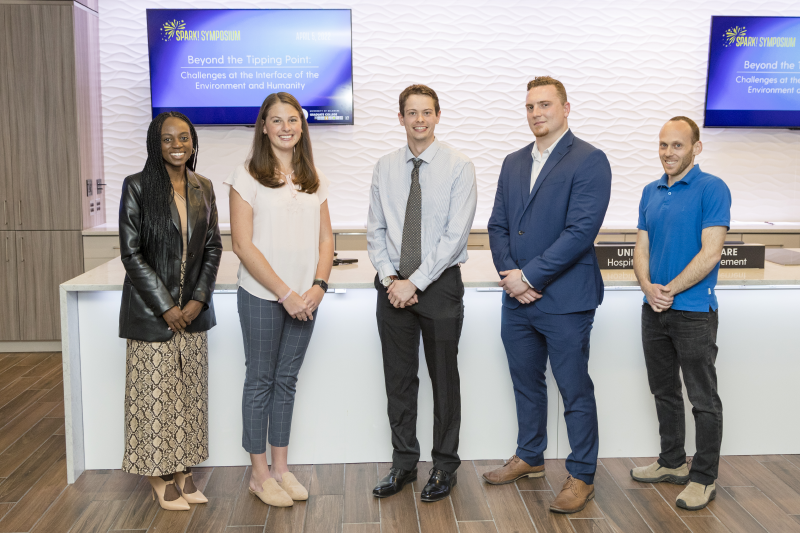
Spark! is not your typical research symposium — it is an action verb. Spark! symposiums ignite new conversations, ideas and collaborations among diverse researchers and professionals through short-form, engaging presentations and audience participation. At Spark!, we break disciplinary boundaries and propel UD research into the public sphere.
Spark! symposiums are hosted biannually by the Graduate College to support UD graduate students and postdocs in developing cross-disciplinary communication skills. With help from our expert coaches, Spark! presenters gain confidence in public speaking while learning strategies for communicating their research to diverse audiences.
Spring 2025 Spark! Symposium
Within and Beyond our Senses: Art, Exploration and Sustainability
April 9, 2025 | 4-7 p.m.
Tower at STAR Audion
100 Discovery Blvd., Newark, DE 19713
Presenters:
- Frederike Benz, College of Earth, Ocean, and Environment, Marine Studies
- Tiziana Capizzi, College of Arts and Sciences, Art History
- Abigail Dudley, College of Arts and Sciences, Fine Arts
- Thaddeus Egnaczyk, College of Engineering, Chemical Engineering
- Rebecca Giles, College of Arts and Sciences, Fine Arts
- Pravesh Raghoo, Joseph R. Biden, Jr. School of Public Policy and Administration, Energy and Environmental Policy
We are looking for graduate students and postdoctoral trainees who show potential for engaging and communicating their research effectively to the general public. This does not mean you have to already be excellent at communicating your research; we will help you get there. Supporting students and postdocs in building effective communication skills is the reason we created Spark!. We assess each candidate's potential when we review their talk proposal. So, submitting a compelling proposal is key. Here are the characteristics we look for:
Minimal jargon - If jargon or technical terms are used, they are explained in a way that is understandable to those outside of your field.
Well-structured and well-written - We look for a clearly defined research question and how the findings have impacts beyond academia. These questions and strategies may help you get started:
What is the core research question?
Why should we pay attention to this research?
How does this research help address challenging problems?
Concise - The optimal length of the proposal is between 250-400 words. Focus on telling a compelling story, not cramming all the data and details of your work into a single presentation.
The proposal clearly draws connections between the topic of your talk and the theme of the symposium. The theme changes for each symposium. How does your talk align with the theme?
Congratulations! Give yourself a pat on the back for passing the rigorous selection criteria to be a Spark! presenter. Our typical acceptance rate is about 20%.
Spark! presenters receive individual and small group coaching during the weeks leading up to the symposium. In these sessions, we will review, revise and refine your presentation so that it is engaging and accessible to the general public. Please make sure to set aside time for the coaching sessions (we will poll availability) and to work on your presentation.
Most successful presenters are committed to learning and improving, open to making changes and willing to step out of their comfort zones (presenting on stage for a large audience can be intimidating!).
At the end of each symposium, judges from diverse backgrounds and disciplines vote to award one speaker with the Ignite award. Feedback from the judges is provided in individualized follow-up coaching sessions to foster further improvement. The audience also votes for the “people’s choice” Glow award.
You can view previous Spark! Symposium introductions and talks here. Past Spark! presenters information can be found below.
Please send your questions to gradsuccess@udel.edu.
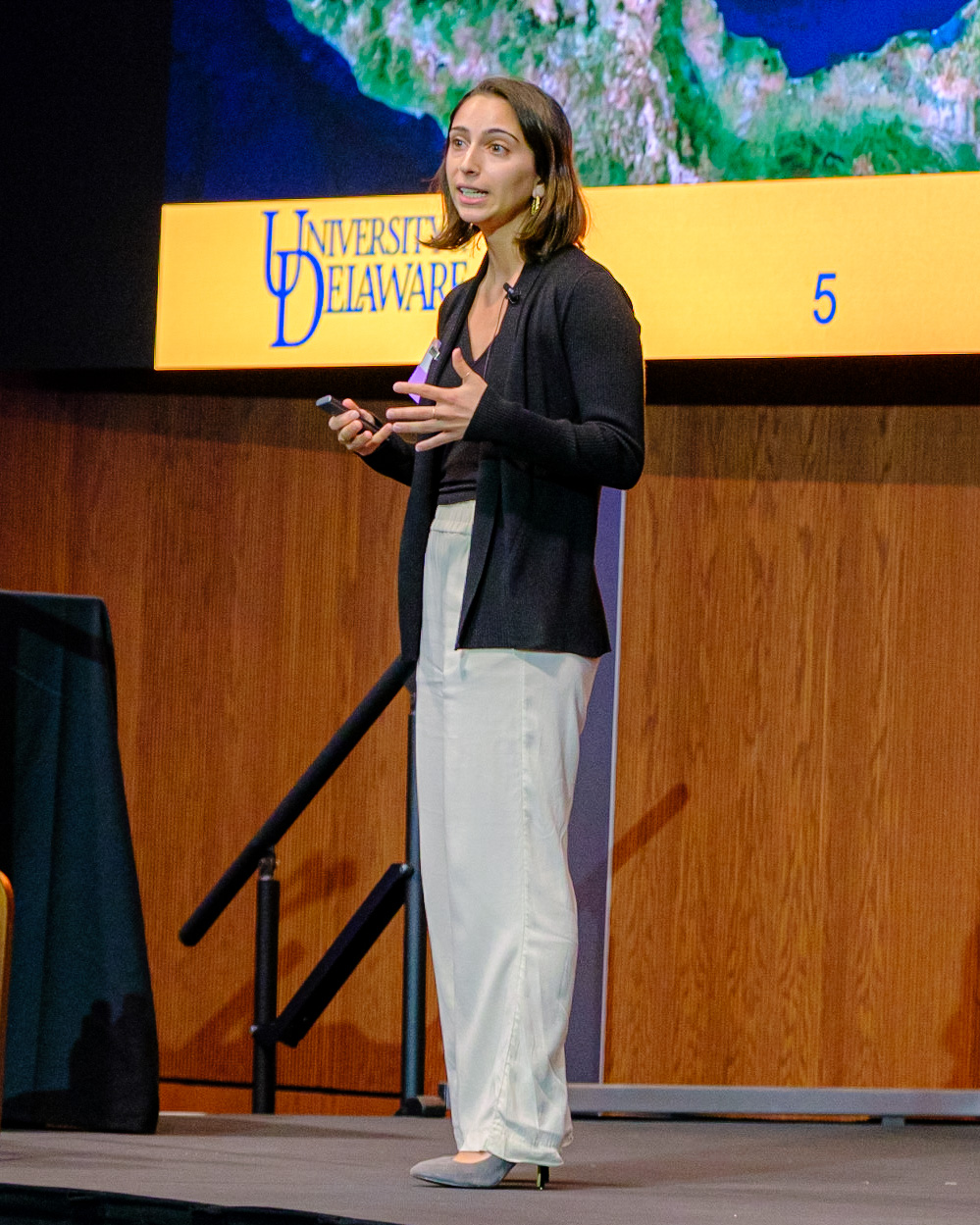
“The Spark! Symposium was an excellent opportunity to not only try something outside of my comfort zone in terms of public speaking but also to educate people across the University about the importance of my research. It was incredibly rewarding to show myself that I could represent my college and gain support and interest from community members. I would recommend that everyone apply — you may surprise yourself!”
Amanda Crandall
Fall 2022 Spark! Presenter
College of Agriculture and Natural Resources
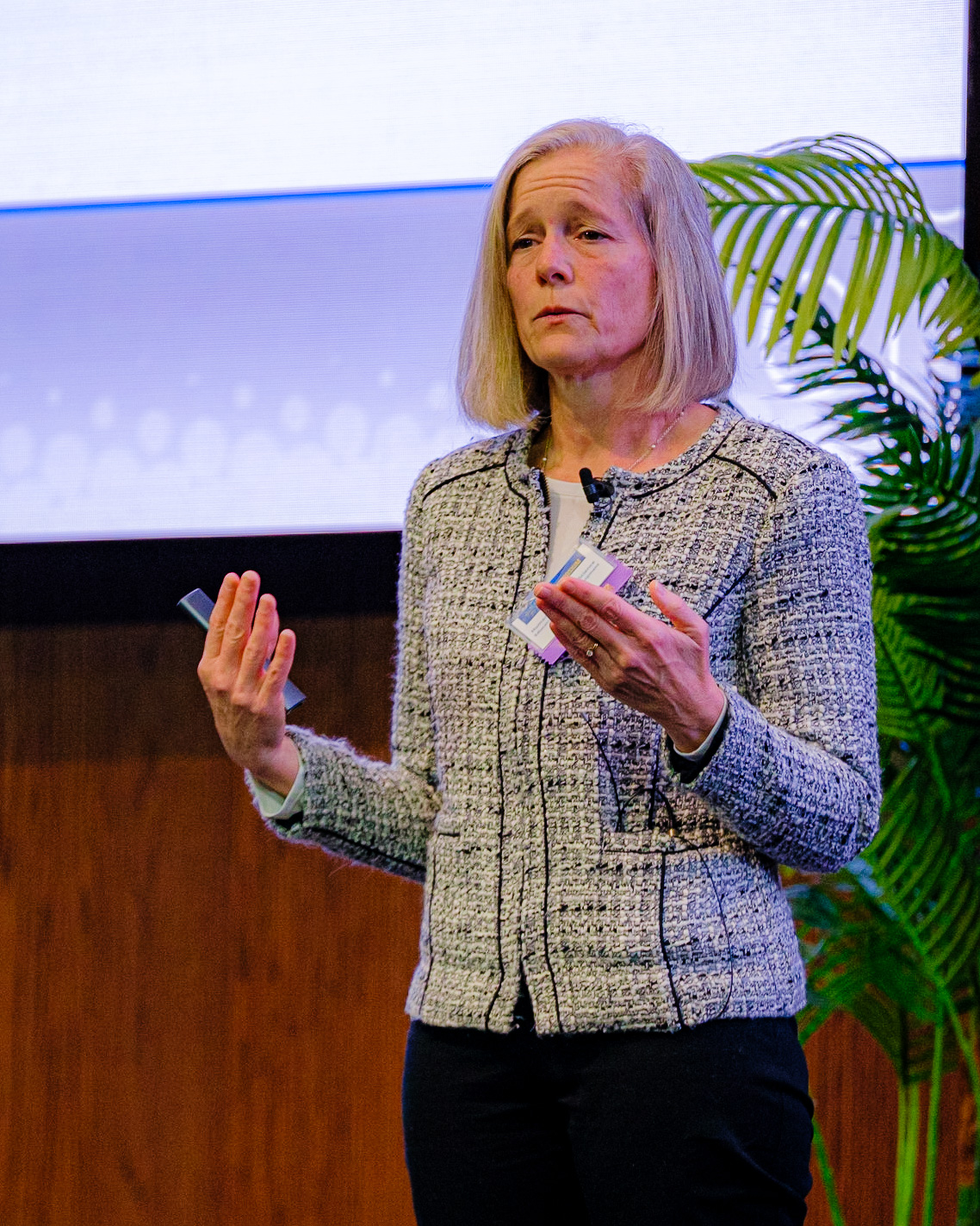
“Participating in the Spark! Symposium provided me the opportunity to learn about and practice the art of presenting research to the general public. I am grateful to those who provided the training and preparation that culminated in the wonderful experience of sharing my research with a broad audience.”
Annette Pic
Fall 2022 Spark! Presenter
College of Education and Human Development
Past SymposiUMS
Fall 2024
Connecting Our Scholarship to Our Community
Presentations
- Alexis Ambroise, College of Education and Human Development, Human Development and Family Sciences
- Ophelia Christoph, College of Earth, Ocean and Environment, Geological Sciences
- Rebecca Daniels, College of Health Sciences, Biomechanics and Movement Science
- Jessica Rubira Gamba, College of Engineering, Chemical Engineering
- Filipa Ribeiro, College of Engineering, Biomedical Engineering
- Alexandra Wynn, College of Health Sciences, Epidemiology

Spring 2024
ADVANCING FINANCIAL HEALTH: TECHNOLOGIES, LITERACY, ACCESS, POLICIES, AND IMPLEMENTATION
Presentations
- Syed Ali Asif, College of Engineering, Computer Science
- Zeyu Chen, Alfred Lerner College of Business and Economics, Financial Services Analytics
- James Korman, College of Arts and Sciences, Political Science and International Relations
- Connor Onweller, College of Engineering, Computer Science
- Marrea Walker-Smith, Alfred Lerner College of Business and Economics, Economics and Entrepreneurship for Educators
- Olumide Abejide, Morgan State University, Graves School of Business and Management, Business Administration
- Adeniyi Adewole, Morgan State University, Graves School of Business and Management, Accounting

Fall 2023
MOBILITY: FROM ATOMS TO IDEAS
Presentations
- Ignite Winner: Abigail Bower, Graduate College, Interdisciplinary Neuroscience,
Moving Together: Understanding Coordinated Movements in Aging and Parkinson's Disease - Glow Winner: Thabu Mugala, College of Agriculture and Natural Resources, Entomology and Wildlife Ecology,
Nature's Hidden Heroes: Harnessing Nematodes for Natural Slug Control! - Brigette Romero Carpio, College of Health Sciences, Medical Sciences
Circles to the Rescue: Towards Developing an Early, Non-Invasive and Specific Test for the Most Common Childhood Mobility Impairment
- Cara Kelly, College of Education and Human Development, Human Development and Family Sciences,
Quality: What Matters in Early Care and Education?
- Rene Hoover, Graduate College, Microbiology,
Mini mysteries: How we can learn when and where bacteria are eating iron
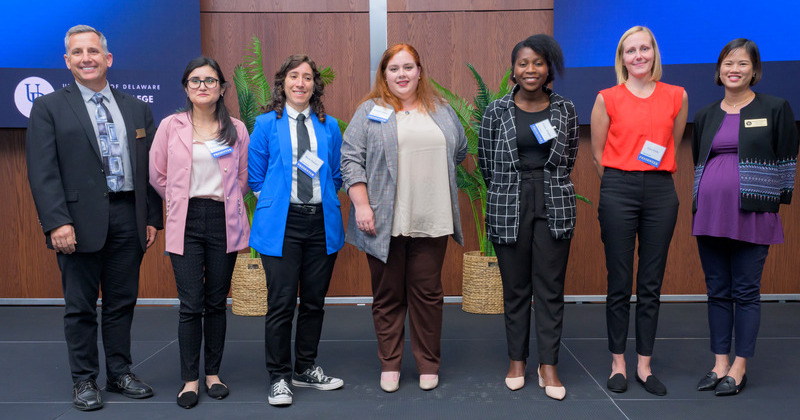
Spring 2023
HEALTHY SELF, SOCIETY AND PLANET
Presentations
Ignite Winner: Melinda Kleczynski, College of Arts and Sciences, Mathematical Sciences,
Topological Data Analysis of Plant-pollinator InteractionsGlow Winner: Ingrid Havron, College of Earth, Ocean and Environment, Marine Studies,
Understanding Beluga Behavior in an Altering ArcticTemitope Idowu, College of Engineering, Civil and Environmental Engineering,
Engineering Solutions for Protecting U.S. Shorelines from the Consequences of Past Human ActivitiesRebecca Lo Presti, College of Arts and Sciences, Winterthur Program in American Material Culture,
From Smallpox to COVID: Understanding Health of the Self in Pandemics of the Past and PresentAbass Muhammed, College of Arts and Sciences, Criminology,
Understanding Collective Efficacy and Community Safety in the Streets
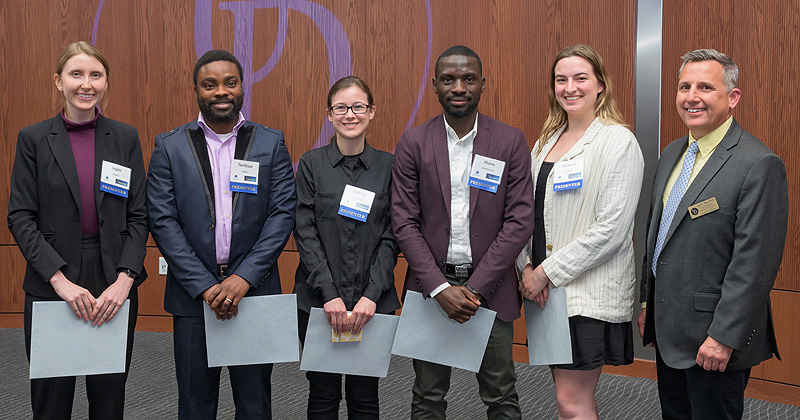
Fall 2022
LIVING TOGETHER; BEING TOGETHER
Presentations
- Ignite and Glow Winner: Amanda Crandall, College of Agriculture and Natural Resources, Wildlife Ecology,
Weather Radar: A tool for conserving migratory birds in a changing world - Muhammad Ishfaq, College of Engineering, Civil Engineering,
Bridge Strengthening for a Better America - Idowu Kunlere, Joseph R. Biden, Jr. School of Public Policy and Administration, Energy and Environmental Policy,
Energy Justice: How the Transition to Clean Energy Could Lead to Repeating the Mistakes of the Oil Industry - Annette Pic, College of Education and Human Development, Human Development and Family Sciences,
Learning from families experiencing homelessness: Early care and education engagement - Brittany Powers, College of Health Sciences, Health Behavior Science and Promotion,
If everybody else can do it, so can I: The College Experience of Students with Intellectual Disability - Rachel Zobel, College of Engineering, Water Science and Policy,
Green Stormwater Infrastructure: A Solution for Runoff and Pollution?
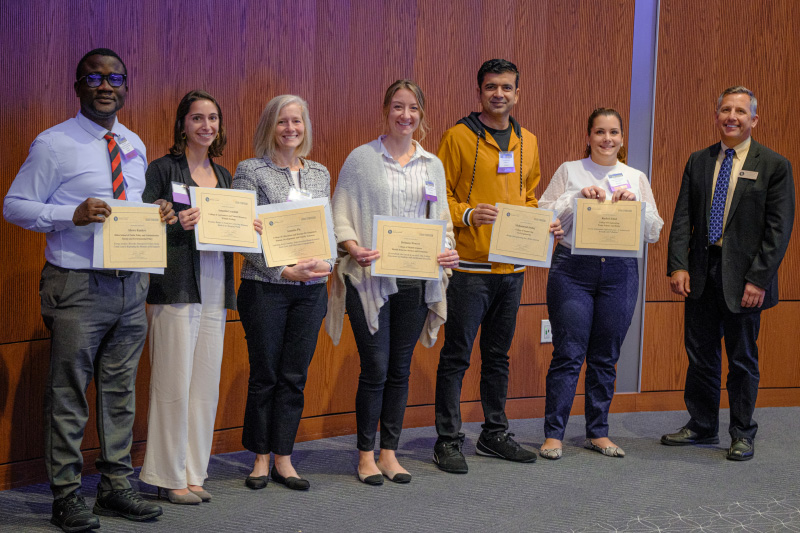
Spring 2022
BEYOND THE TIPPING POINT: CHALLENGES AT THE INTERFACE OF THE ENVIRONMENT AND HUMANITY
Presentations
- Ashley Paintsil, College of Arts and Sciences, Communication,
Increasing Black Women's Suncare Efficacy - Sarah Wells, College of Health Sciences, Epidemiology,
Domestic Violence and COVID-19: How did Social Distancing Impact Victim Services? - Conner McCrone, College of Agriculture and Natural Resources, Plant and Soil Sciences,
When Sea Level Rises: The Lost City of Delaware - Bradie S. Crandall, College of Engineering, Chemical and Biomolecular Engineering,
Electrifying our Way Out of Climate Change: The Technology, Economics and Policy - Anner Paldor, College of Earth, Ocean and Environment, Geological Sciences,
Coastal Impact of Storm Surges Expected to Exacerbate due to Climate Change
